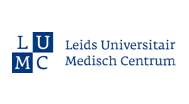Sustainability
The climate crisis is currently the greatest threat to public health. The entire world agrees on this point. Climate change and environmental pollution are increasingly leading to more and other health care demands, like the increase in infectious diseases, heat stress, mental problems, allergies, lung disorders, cardiovascular diseases and neurological diseases. New diseases are also appearing that have been transmitted from animals to humans, and ‘tropical diseases’ are found in other parts of the world than the tropics. This puts more pressure on the healthcare sector and increases the costs. The necessity for sustainability is greater than ever
The healthcare sector is responsible for about 7% of the national footprint in terms of the emission of CO2-equivalent. In addition, it produces 4% of the waste and uses 13% of all metals and minerals. The umcs are working on improving everyone’s health, helping people live healthy lives and preventing diseases. But by providing healthcare, conducting research and teaching, the umcs unfortunately are also contributing to the climate crisis. They intend to change this situation, for a greener healthcare, research and education.
Green Deal
On behalf of the umcs, the NFU signed the Green Deal ‘Working together towards sustainable healthcare’ on 4 November 2022. In this Green Deal the parties discussed the objectives and actions to do even more in the period 2023 through 2026 towards realising sustainable healthcare. That means ‘green and climate-neutral healthcare’ with a minimal emission of greenhouse gasses and impact on the environment, provided with an emphasis on economical and circular use of raw and processed materials. There will be a greater focus on prevention, health and reducing the negative impact of healthcare on the climate and environment. As a result, the sector will contribute to restricting the growing demand for healthcare and to the movement to provide customised healthcare.








